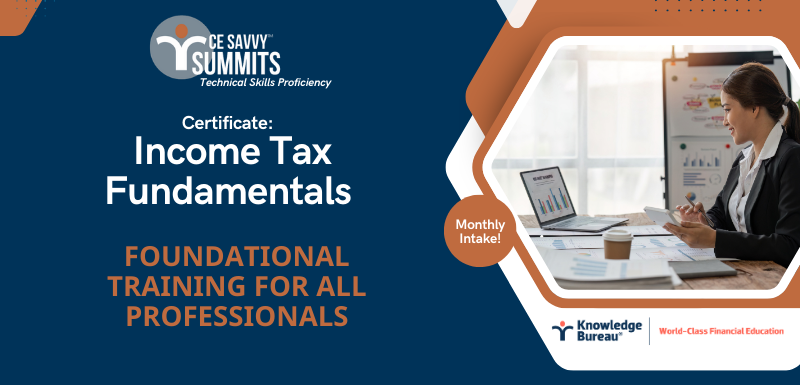Tax Tip: The More Obscure Medical Expenses

Ruth Horst
Are you claiming all the medical expenses you or your clients might be entitled to?
Check out the Knowledge Bureau Report checklist for some of the most missed, and obscure claims that can be made. In this article, we discuss health care supplies, medical practitioner payments and training/tutoring expenses. Remember these can be grouped into the best 12 month period ending in the tax year to maximize your claim and that this is a non-refundable tax credit. Often it’s best to claim this on the return of the lowest income earner, but only if there are taxes payable.
Health Supplies: The cost of certain supplies that are needed because of a medical condition may also be deducted:
- Support hose/compression stockings
- Disposable briefs and diapers (not for babies)
- Ileostomy & colostomy supplies
- Diabetic supplies
A medical diagnosis and detailed receipts must be available, if requested by CRA.
Medical Practitioners: Fees paid to health care professionals that CRA recognizes as medical practitioners may be claimed. It is important to understand that not all provinces recognize the same practitioners for the provincial credit. These practitioners include:
- Audiologists
- Chiropractors
- Midwives
- Naturopaths
- Physiotherapists
- Podiatrists
- Registered massage therapists
- Speech language pathologists
Training Expenses: Reasonable fees paid for an individual to learn to care for a relative with a mental or physical impairment. The relative must either live with the person being trained or depend on them for support.
Tutoring Services: These fees are deductible if they are in addition to the primary education of a person with a learning disability or an impairment in mental functions. They are only deductible if they are paid to a tutoring service that is not related to the individual.
Often Missed but Often Queried Expenses: Taxpayers often wonder about this expenses; they are deductible in some cases:
- Ambulance & Medical Transport Fees
- Cosmetic surgery only if it is necessary for medical or reconstructive purposes. This often results from trauma or disease
- CPAP machines
- Hearing Aids and batteries
- Lab fees for testing not covered by provincial health plans
- Laser Eye Surgery
- Orthopedic shoes, boots, inserts
The Bottom Line. Medical expenses that are paid out-of-pocket are a commonly missed and often audited claim on the personal tax return. Check out all the rules and learn more about how to make these claims.
NOW TAKING ENROLMENTS! Every advisor and their client can learn more by taking Knowledge Bureau’s Income Tax Fundamentals Course. It’s the best 20 hours of online training you’ll take for your financial literacy and it results in a certificate and 20 CE credits, too. You’ll learn with expert instruction you can listen to as well.